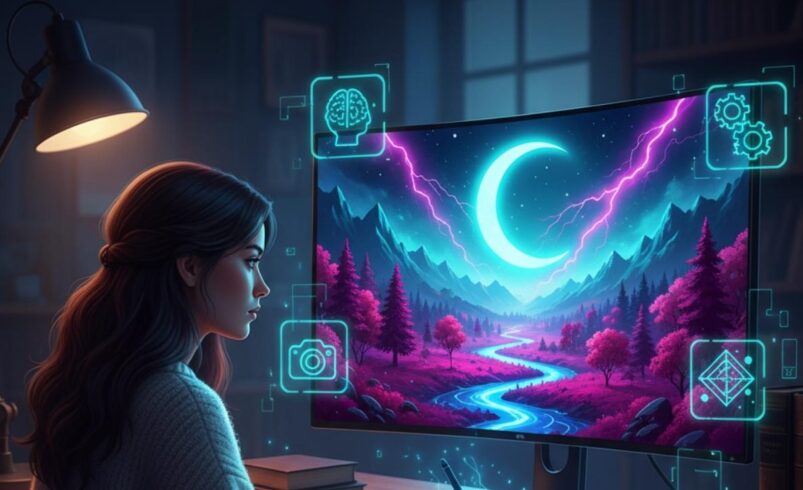ImagineArt AI: A Guide to Using and Understanding AI-Generated Art
- October 2, 2025
- 0
Imagine standing before a blank canvas, but instead of reaching for a paintbrush, you input a few words, and Voilà—a stunning piece of art emerges. This isn’t the
Imagine standing before a blank canvas, but instead of reaching for a paintbrush, you input a few words, and Voilà—a stunning piece of art emerges. This isn’t the

Imagine standing before a blank canvas, but instead of reaching for a paintbrush, you input a few words, and Voilà—a stunning piece of art emerges. This isn’t the work of an artist, but of ImagineArt AI, a revolutionary tool that merges creativity with artificial intelligence. In this article, we’ll explore how ImagineArt AI is not just changing the way art is created, but how it’s reshaping the future of the creative industry.
ImagineArt AI’s a cutting-edge artificial intelligence designed to generate artwork, music, designs, and more based on user inputs. This tool utilizes machine learning and deep neural networks to understand and transform creative prompts into impressive visuals. From abstract art to hyper-realistic designs, ImagineArt AI empowers anyone—from seasoned artists to amateurs—to create unique masterpieces in seconds.
ImagineArt AI uses deep learning algorithms and neural networks to mimic the way humans understand and create art. By training the system on millions of images, paintings, and other visual forms, it can generate new artworks based on patterns it recognizes. This method enables ImagineArt AI to produce visually appealing and contextually accurate images.
A key component of ImagineArt AI’s success is the use of Generative Adversarial Networks (GANs). GANs consist of two neural networks: one generates images, while the other critiques them. Through this feedback loop, the AI continuously improves, refining its creations until they meet high-quality standards.
ImagineArt AI is a game-changer for designers. It helps streamline the creative process, providing inspiration, quick drafts, or final pieces, all without starting from scratch. Whether for logos, illustrations, or conceptual designs, ImagineArt AI is helping professionals in the visual arts world unlock new creative possibilities.
ImagineArt AI can also be a great tool for musicians. It generates album covers, posters, and promotional visuals based on the themes or mood of the music. For producers, it can quickly visualize album concepts, creating imagery that aligns with the sound and feel of the track.
Continues to evolve, Imagineart will likely get even better at understanding complex artistic concepts and nuances. Future versions could generate 3D designs or integrate with virtual reality, allowing for immersive experiences.
While ImagineArt has immense potential, there are ethical concerns, especially regarding copyright and the originality of AI-generated works. Additionally, there’s the question of whether AI could replace human artists or simply become a tool to enhance human creativity.
Jane, a freelance graphic designer, was tasked with creating a logo for a new tech startup. Using ImagineArt AI, she inputted the company’s values and vision, and within minutes, the AI generated several logos. Jane was able to choose one and tweak it to perfection, saving time and impressing her client with high-quality designs.
AI is more than just a tool; it’s a revolution in creativity. Whether you’re a professional artist or a beginner, this AI platform opens up new possibilities for anyone looking to create stunning art. As AI technology continues to improve, the lines between human and machine-generated creativity will blur, leading to even more exciting developments in the world of art.
ImagineArt AI is used to generate artwork, illustrations, and designs based on text prompts and artistic styles, helping artists and creators enhance their projects.
While ImagineArt can generate art quickly and efficiently, it lacks the emotional depth and personal touch that human artists bring to their creations. It is best used as a tool to enhance creativity, not replace it.
Some features of ImagineArt may be free, but full access to advanced tools and high-quality outputs typically requires a subscription or payment.
To improve results, you can refine your prompts, adjust styles, and regenerate artwork multiple times. Experimenting with different descriptions will help fine-tune the output.